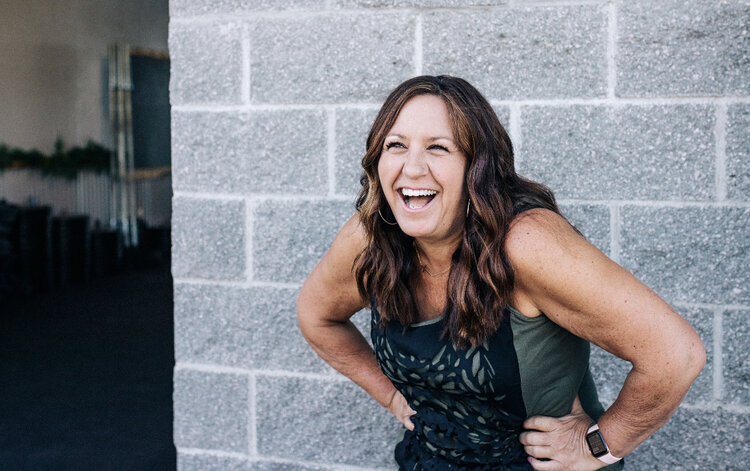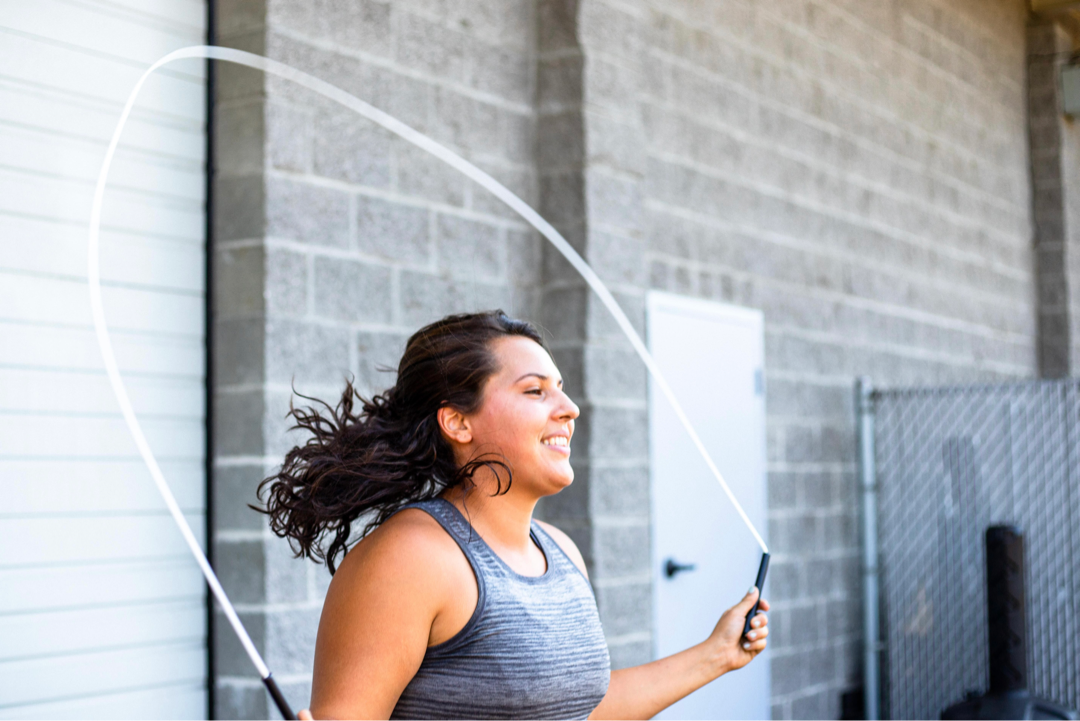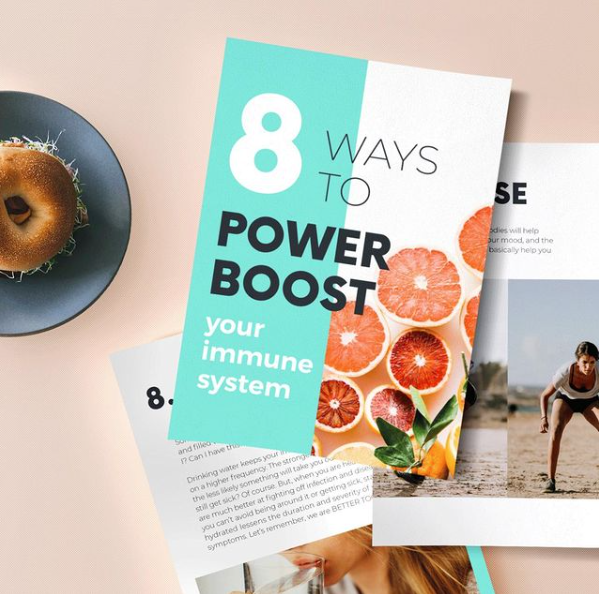
Real Women. Real Life.
THE VALUE & BEAUTY OF PLAY
You may think it's for the kids, but we at Dropgym disagree. Keep reading to learn how play can
Optimize joy, creativity, and strengthen the health of your relationships
Help you better manage stress and regulate your nervous system
Play a huge role in healing trauma
Somewhere along the way, between childhood and adolescence we left behind an essential part of us. It’s back there in the bookcases of our favorite novels, the giant tubs of legos, the pond, or the woods behind our family’s home. It was a part that we may have taken for granted- it was fantastical, expansive, present, intelligent, hopeful, creative, and… FUN. To our own detriment, as we mature, we often take on society’s unhelpful expectation to “grow up” fast and pursue more adult ventures. We begin to dissociate from whimsical play and trade in our most effective pre-programmed coping strategy for chasing the American Dream and getting ahead. And yet we are stressed out of our minds, overly-medicated, disconnected, overly worked, overweight and continuing to dismiss one of our body’s most powerful natural resources for rejuvenation and long term health. We love what Stuart Brown of the Institute for Play in Carmel Valley, Calif. has to say about this…
“Play is a basic human need as essential to our well-being as sleep, so when we’re low on play, our minds and bodies notice. Over time, play deprivation can reveal itself in certain patterns of behavior: We might get cranky, rigid, feel stuck in a rut or feel victimized by life. To benefit most from the rejuvenating benefits of play, we need to incorporate it into our everyday lives, not just wait for that two-week vacation every year.”
How many of us live that way? We work our butt off all year just to cash in on a couple weeks vacation hoping that it will pay the dues we owe to our body, mind and heart, and mitigate the stress we feel. But does it actually work?
We never outgrow our need to play. How we engage or disregard play forms our brain and body into adulthood, and if cultivated well, it can have a massive impact on helping manage the nervous system’s stress. The Vagus Nerve, as we often talk about, touches every single organ in our body, and play specifically improves the tone of the vagus nerve.
We all define play differently. If you went into a kindergarten classroom today, you would find a whole spectrum of completely different ideas of what play means- from cars, to building blocks, demolition zones, dress up, drawing, to make believe, and of course, DIRT! As adults, we actually need to play just as much as children do, but we have socially trained ourselves to not engage in behaviors we have decided are unnecessary. We call it frivolity, extravagance, childishness, however the science says not only is play transformative for emotional and physiological well-being, it is essential!
Biologically, we define Play as “excitation in safety.”
We must feel safe in order to create, dream, love, enjoy. It is imperative for our wellbeing that we find places of safety to experience joy. One of the most profound findings about Play is that it actually has a huge role in regulating the nervous system and healing trauma. We need safety in order for our body/mind to release and process trauma.
Our friend @repairing_the_nervous_system says that play is a blend of 2 states of the nervous system: “1- the sympathetic nervous system - this is the energy mobilizing, increasing metabolic output, and 2- the ventral branch of the vagus nerve and the social engagement system- which brings a feeling of safety and allows for connection.”
She goes on to say that “Play improves your emotional health as well as your psychological and physical well-being. Neural exercises like play are a powerful antidote to nervous system dysregulation and helping your nervous system recover from chronic and traumatic stress. They’re like doing bicep curls for your vagus nerve.” *We highly recommend following @repairing_the_nervous_system as an amazing source.
Play enables you to be more creative, can increase your energy, lower anxiety, and help you learn at a rate 6 times faster than without it! It takes you out of past-future thinking, and brings you quickly into the present and a state of enjoyment. Brown (quoted above) also states that research has shown that without play, adults are less curious, less imaginative and can lose a sense of joyful engagement in daily living.
It also has the unique ability to energize us, or calm us down, depending on what our system’s need. You can even mobilize and energize yourself with play without switching into fight-or-flight, while also being able to down-regulate with play if you are overly amped. This can help you stay out of survival mode and strengthen your mind-body connection. Because of Play’s unique ability to help us regulate- it can effectively help you get out of the “stuck” feeling many of us experience and increase a flexible, balanced, and thriving wellbeing.
An important note is that play is defined differently for every person. There is a vast and endless list of what could be considered “play”- what’s important is finding out how you individually access it, so that you can improve the quality of your life.
So - if play is so important for our bodies, brains, and hearts- how do we engage it more often?
Play’s powerful effect on regulating your nervous system can be experienced on a day to day basis. For the next 7 weeks we are going to be diving into the topic of PLAY- it’s effects on our nervous system, our body-mind connection, our capacity, and our fulfillment in life. Every monday we will post questions to engage this topic in your day, and if you are at the gym with us you will see movements and conversation including play. We would love to engage with you as we go on a discovery journey together- share with us in the comments on our social media and let us know how it is going! We hope to hear how engaging in play is adding to the quality of your powerful, beautiful, unique life.
Run a 5K in 30 Days (and Feel Good Doing It)
Want to run farther, but don’t know where to start? You can do it! Here are some important tips along with a free running calendar to help you reach your goals.
So, you want to run a 5K! Or a half marathon, a mile, or (insert personal goal here). It’s important to know that you CAN do it. No matter what shape you are in, you are capable of far more than you think.
There are some important things you need to know before you start running so you condition your body and your mind, take good care of your body, and crush your goals.
Let’s break it down into 3 parts: Preparation, Progress, and Post-Run.
Prepare Well.
Find your “why.”
Why do you want to do this? What do you want to accomplish? What do you hope to get out of this? Once you figure this out, you’ll know how to better motivate yourself when it gets hard and you feel like giving up.
Identify your fears.
Is there anything holding you back from doing this? Often times we never start because we have underlying fears that keep us from trying. Is it failure? Are you trying to avoid discomfort? Scared of what’s on the other side? If you can identify your fears, articulating them (literally saying it out loud) gives you the opportunity to realize how minuscule they really are compared to the joy of accomplishing your goals.
Find a support buddy. (or buddies!)
This can be someone you want to run with, or simply a friend or family member who will help you remember your “why” and hold you accountable to get out of bed and do the thing when you feel like putting it off.
Make a plan, and stick to it.
Plan out which days, and what times of the day you will run. That means sticking to a bed time if you plan to run in the mornings. Get a babysitter for the kids. Meal prep and shop for groceries the week before so the time you set aside for your morning or evening run stays open and doesn’t fill up with other life things. Your 5K will not just ‘happen’ to you. You show up and make it happen! Need help figuring out a calendar? We’ve got you, girl. Here’s a sample 30 day calendar we made just for you. We do this together with our gym every summer! If you want some buddies to run with, join us at Dropgym. We’d love to run with you :)
Note: In our calendar, ’ means “minutes.” For example, Walk 3’ Run 3’ x 3 means “walk 3 minutes, run 3 minutes, 3 times.
Make Progress.
If you want to run a 5K and do it well, you need to run consistently. Sticking to a schedule like our 5K calendar above will help you get there.
Now let’s get to the actual running part. Here are some important steps that will help you feel run farther, avoid injury, and feel better while running.
Warm up.
We cannot stress it enough. Warm. Up. Your. Muscles. It’s so important that you warm up so you avoid injury and help support your body while asking her to do something that’s going to physically and mentally stretch you. It’s also vital that you know which muscles to warm up. These are the major 3:
a) Ham strings
b) Calves
c) Psoas
Your psoas muscle is located in the lower lumbar region of your spine and extends through your pelvis to your femur. This muscle works by flexing your hip joint and lifting the upper leg towards the body.
Movements to help you warm up are calve raises, psoas raises (sitting on the ground with legs extended out while doing leg lifts), and skipping, knee ups, butt kicks and lunges to get your heart rate up.
Nose breathe.
If you’ve trained with us, then you know how vital nose-to-nose breathing is! Nose breathing activates your parasympathetic nervous system, i.e. your “flow” state. Likewise, inhaling through your mouth triggers your sympathetic nervous system, which keeps you in survival mode, or in a state of flight. Practice inhaling and exhaling through your nose for your entire walk / run. You will be challenged. Ultimately, you will train your body to be able to run much farther and avoid unnecessary injury.
Eliminate unnecessary noise.
One of the quickest ways you can grow your capacity is to eliminate unnecessary noise. Run without listening to music. Music can often distract you from your own thoughts and feelings. What if you allowed yourself to be present with your emotions when it gets hard?
Don’t talk to your buddies while you run (and you won’t want to if you stick to nose breathing). Be with yourself. Train your mind to choose to keep going when you want to stop. Move in to physical discomfort with your breath. Choose to struggle and find your states of fight and flow instead of giving up.
P.S. Want to learn more about the science and power of your breath? Come train with us and we’ll work with you to strengthen your breath and movement.
Post-Run Care.
How you finish effects how you start next time. We want you to finish well so you feel great—physically, mentally, and emotionally—the next time you train.
Be proud of yourself.
When you finish training, how do you see yourself? What are you thinking and saying about yourself? Your self narrative is extremely influential and shapes how you treat yourself and what you accomplish. You are in charge of choosing to either champion and affirm yourself for the work you’ve done, or tear yourself down and punish yourself for what you haven’t done. Be proud of yourself. Kind to your heart. More compassion, less punishment.
Warm down.
Walk. Stretch your calves, ham strings and traps. Box breathe (inhale through the nose, exhale through pursed lips) to bring your heart rate down. Drink water. Replenish. Eat a nourishing meal. Rest. Get a good night’s sleep. Prepare for tomorrow. You’ll be running a 5K in no time! You’ve got this!
Want more freebies and resources from us?
8 Ways to Power Boost Your Immunity Against Covid-19
Inside is a simple, free guide to encourage and remind you of ways to take care of you. It’s filled with tips to boost your immunity and enjoy being alive, especially when things feel scary.
Here at Dropgym and Camp17 we often talk about plot twists, something else happening, things not going according to plan. I think it’s safe to say that all of the above are currently a reality. Situations that incite fear of the unknown call us to attention. It’s unfortunate that it takes something like COVID-19 to wake us up to taking better care of ourselves, but in times like these we value our health more. We think about the people around us. Well, hopefully we are not only thinking of ourselves. (Like maybe I shouldn’t buy out the store of everything since there are other people in the world who might need supplies too.)
These times test us, they expose us, and they show us that which is buried deep. They can also wake us from our slumbers and compel us to take action in our lives in areas where we’ve been dragging our feet. I know this has been the case for me.
I want less chocolate and more greens. I want bone broth instead of pizza.
I am choosing to go outside and get the sun on my face instead of staying inside and scrolling on my phone.
I’m exercising because it’s important, knowing that the sweat is releasing toxins, increasing endorphins, and keeping me strong and my body capable of stress management and building immunity.
Below is a simple (and of course, free) guide to encourage and remind you of ways to take care of you. It’s filled with tips to boost your immunity and enjoy being alive, even/especially when things feel scary.
Inside the Power Boost Guide, you’ll also find a little gift for 30% off any of our online workshops, so you can stay connected and resourced from home.
Get the PowerBoost Guide.
Keep breathing. Remember that there’s much to be thankful for, and so many reasons to enjoy being alive. We’re in this together.











